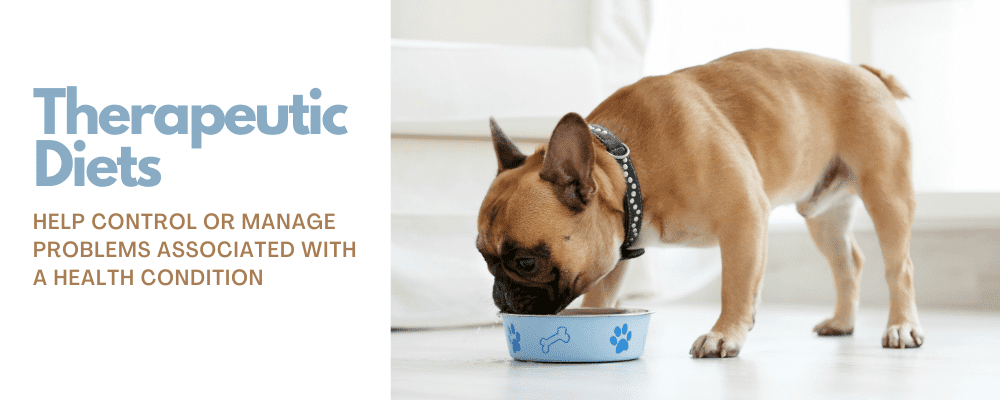What are therapeutic diets?
Nutrition is an important part of your dog or cat’s wellbeing. Having a balanced diet helps support vital functions in the body, support growth, and encourage longevity. Proper nutrition also plays a significant role in helping the body manage illnesses. Certain types of dog and cat foods, known as therapeutic veterinary diets, may be used to help control or manage problems associated with a health condition. These specialty foods contain certain types of ingredients and nutrients as well as controlled levels of each nutrient. Therapeutic diets may be used in short or long-term dietary plans and may accompany medications or other treatments.
What are some diseases that can be managed with diets?
Certain disease conditions can be managed, at least in part, by feeding an appropriate diet. Kidney disease, obesity, arthritis, diabetes, Feline Idiopathic Cystitis, bladder stones, constipation, diarrhea, food allergy, congestive heart failure, cancer, liver disease, and dental disease are some common medical issues that diets address. They may not be managed with diet alone, but diet can be a big help. As Hippocrates said, “Let food be thy medicine and medicine be thy food.”
Why are prescription diets?
Veterinarians may choose a therapeutic diet for your dog or cat to help nutritionally manage a condition or disease. Therapeutic diets require a prescription because your vet must monitor your pet’s condition and dietary needs. These diets have increased or decreased levels of vitamins, minerals, and other ingredients that benefit animals with specific health conditions, but could be unsafe for healthy dogs and cats. Feeding a therapeutic diet for a dog or cat who does not need it may lead to problems like nutrient deficiencies. It is important to discuss your pet’s health with your vet to see if a therapeutic diet is appropriate.
Prescription and therapeutic diets are clinically tested and developed by a team of PhD nutritionists and veterinarians, so you can rest assured your pet is receiving premium nutrition backed by science.
If your pet is facing a specific health condition, or you sense they need additional support, schedule an appointment with your vet and ask how changing your pet’s diet can help.
